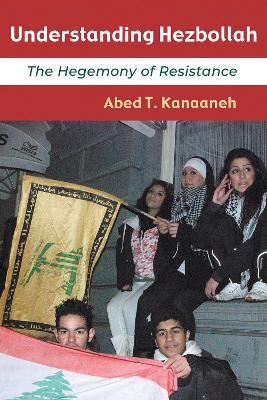
Understanding Hezbollah
The Hegemony of Resistance
Seiten
2021
Syracuse University Press (Verlag)
978-0-8156-3707-3 (ISBN)
Syracuse University Press (Verlag)
978-0-8156-3707-3 (ISBN)
Hezbollah’s influence in military issues is well known, but its role in shaping cultural and political activities has not received enough attention. Kanaaneh sheds new light on the organisation's successful evolution as a counterhegemonic force in the region's resistance movement, known as ""Maqawama"".
Over the last three decades, Hezbollah has developed from a small radical organization into a major player in the Lebanese, regional, and even international political arenas. Its influence in military issues is well known, but its role in shaping cultural and political activities has not received enough attention. Kanaaneh sheds new light on the organization's successful evolution as a counterhegemonic force in the region's resistance movement, known as "Maqawama". Founded on the idea that Islam is a resisting religion, whose real heroes are the poor populations who have finally decided to take action, Hezbollah has shifted its focus to advocate for social justice issues and to attract ordinary activists to its cause. From the mid-1990s on, Hezbollah has built alliances that allow it to pursue soft power in Lebanon, fighting against both the dominant Shi‘ite elites and the Maronite-Sunni, as well as Israeli and US influence in the region. Kanaaneh argues that this perpetual resistance - military as well as cultural and political - is fundamental to Hezbollah's continued success.
Over the last three decades, Hezbollah has developed from a small radical organization into a major player in the Lebanese, regional, and even international political arenas. Its influence in military issues is well known, but its role in shaping cultural and political activities has not received enough attention. Kanaaneh sheds new light on the organization's successful evolution as a counterhegemonic force in the region's resistance movement, known as "Maqawama". Founded on the idea that Islam is a resisting religion, whose real heroes are the poor populations who have finally decided to take action, Hezbollah has shifted its focus to advocate for social justice issues and to attract ordinary activists to its cause. From the mid-1990s on, Hezbollah has built alliances that allow it to pursue soft power in Lebanon, fighting against both the dominant Shi‘ite elites and the Maronite-Sunni, as well as Israeli and US influence in the region. Kanaaneh argues that this perpetual resistance - military as well as cultural and political - is fundamental to Hezbollah's continued success.
Mustafa Kabha is associate professor and chair of the Department of History, Philosophy, and Judaic Studies at Open University of Israel. Nahum Karlinsky is a senior lecturer at the Ben-Gurion Research Institute, Ben-Gurion University of the Negev, Israel. He teaches modern Jewish history and Israeli studies.
| Erscheinungsdatum | 19.07.2021 |
|---|---|
| Reihe/Serie | Contemporary Issues in the Middle East |
| Verlagsort | New York |
| Sprache | englisch |
| Maße | 152 x 229 mm |
| Gewicht | 333 g |
| Themenwelt | Geisteswissenschaften ► Geschichte ► Regional- / Ländergeschichte |
| Sozialwissenschaften ► Politik / Verwaltung ► Europäische / Internationale Politik | |
| Sozialwissenschaften ► Politik / Verwaltung ► Vergleichende Politikwissenschaften | |
| Sozialwissenschaften ► Soziologie ► Spezielle Soziologien | |
| ISBN-10 | 0-8156-3707-1 / 0815637071 |
| ISBN-13 | 978-0-8156-3707-3 / 9780815637073 |
| Zustand | Neuware |
| Haben Sie eine Frage zum Produkt? |
Mehr entdecken
aus dem Bereich
aus dem Bereich
Erinnerungen
Buch | Softcover (2024)
Pantheon (Verlag)
16,00 €


